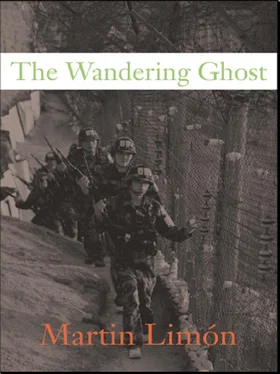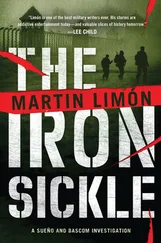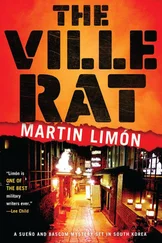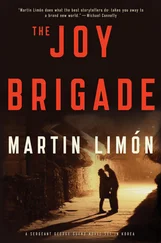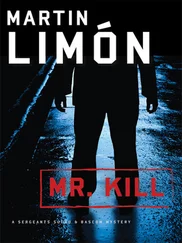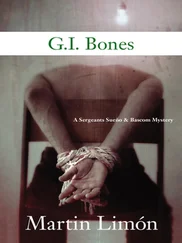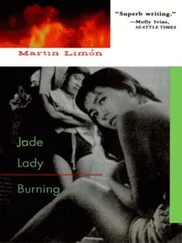Martin Limon - The Wandering Ghost
Здесь есть возможность читать онлайн «Martin Limon - The Wandering Ghost» весь текст электронной книги совершенно бесплатно (целиком полную версию без сокращений). В некоторых случаях можно слушать аудио, скачать через торрент в формате fb2 и присутствует краткое содержание. Жанр: Полицейский детектив, на английском языке. Описание произведения, (предисловие) а так же отзывы посетителей доступны на портале библиотеки ЛибКат.
- Название:The Wandering Ghost
- Автор:
- Жанр:
- Год:неизвестен
- ISBN:нет данных
- Рейтинг книги:4 / 5. Голосов: 1
-
Избранное:Добавить в избранное
- Отзывы:
-
Ваша оценка:
- 80
- 1
- 2
- 3
- 4
- 5
The Wandering Ghost: краткое содержание, описание и аннотация
Предлагаем к чтению аннотацию, описание, краткое содержание или предисловие (зависит от того, что написал сам автор книги «The Wandering Ghost»). Если вы не нашли необходимую информацию о книге — напишите в комментариях, мы постараемся отыскать её.
The Wandering Ghost — читать онлайн бесплатно полную книгу (весь текст) целиком
Ниже представлен текст книги, разбитый по страницам. Система сохранения места последней прочитанной страницы, позволяет с удобством читать онлайн бесплатно книгу «The Wandering Ghost», без необходимости каждый раз заново искать на чём Вы остановились. Поставьте закладку, и сможете в любой момент перейти на страницу, на которой закончили чтение.
Интервал:
Закладка:
The woman who owned the property was surprised to see two GIs duck through her front gate and enter her courtyard. She’d been squatting in front of a tub of laundry but as we approached she stood, holding her lower back. At first, she was startled when I spoke Korean to her. A lot of Koreans are. They don’t expect it from a GI. My Korean is far from perfect but I can communicate and, as long as they keep it simple, I can read and write the language. The U.S. Army makes it easy to learn. Free classes are offered on base and a free textbook is provided, along with a personable young Korean woman to do the teaching. However, on a compound of five thousand GIs only two other guys showed up regularly. Still, I enjoyed studying. Deciphering a sentence was like solving a puzzle, and I’ve always loved puzzles.
Once I told the woman what we were there for, she didn’t hesitate. She led us along the raised porch surrounding the courtyard and pulled open one of the oil-papered doors. This, she told me, was the hooch that Jill Matthewson had lived in. Other GIs had been here before, along with the Korean National Police, examining the place and questioning her renters.
It was a tiny single room. Like most of the hooches in Korea, its dimensions were only about twelve feet by twelve feet. It did, however, have an overhead fluorescent light, a vinyl-covered ondol floor- heated by charcoal gas running through ducts in the stone foundation-and a beat up wooden armoire. There were five hooches in the horseshoe-shaped compound. Two of them empty: Jill’s and the one next door. I asked what had become of Jill’s personal effects.
The landlady told me that all Jill had kept here were civilian clothes. That jibed with the MP report and what Ernie and I had observed in the barracks. In order to be ready for emergency deployment, all 2nd Infantry Division GIs were required to keep their uniforms and combat gear in the barracks, even if they maintained an unauthorized hooch out in the village. Other than civilian clothing, the woman told us, Jill had kept only toiletries and a few books and magazines here. About three weeks ago, without saying anything, Jill had packed up her few belongings and left. As the landlady told the Korean police, she had no idea where Jill had gone. She’d left without warning. Was she friendly with anyone here or in the neighborhood? No. After learning how to change the charcoal that heated her hooch and how to pump water from the well and where the byonso was located, she’d kept to herself. By mimicking the other renters, Jill Matthewson had learned to remove her shoes before stepping up on the wooden porch and then she’d mastered the most tedious Korean housekeeping chore of all: using a moist rag to keep the warm vinyl floor of her hooch scrubbed and free of soil.
“She very clean,” the landlady told us, “for an American.”
On the way back to the bar district, Ernie and I stopped at the real estate office Brandy had tipped us to. Having already been questioned by the Korean police, the Korean agent was very cooperative, providing all the particulars about Jill’s rental. Then I put the question I’d really come to ask: Why did Jill Matthewson’s landlady have two vacancies?
The real estate agent seemed surprised and thumbed through his records. Jill’s hooch had remained unoccupied because the Korean police told the owner not to rent it out until they gave her permission. They had already examined it, finding nothing, but it was still, theoretically, a crime scene. Until the case was closed they didn’t want anyone moving in. The other hooch had also been recently vacated.
The real estate agent handed me a five-by-seven card and I studied the hangul script. Kim Yong-ai had been the tenant of the hooch next to Jill’s. A woman’s name. I jotted it down, along with her Korean national identification number. She’d moved out three weeks ago, the same day Jill Matthewson disappeared.
Why hadn’t the landlady told us that?
The real estate agent had no idea.
I asked about Kim Yong-ai’s occupation.
Entertainer, he said.
What type of entertainer?
Apparently, there was no Korean word for it. Instead, he mimicked dancing and removing articles of apparel.
“Stripper,” Ernie said in English.
The real estate agent nodded his head vigorously.
At our request, the Korean National Police arrested Jill Matthewson’s landlady.
At the Tongduchon Police Station, she was more voluble. Yes, Kim Yong-ai was a stripper and, yes, she worked the GI bar district of Tongduchon. Yes, she had become good friends with Jill Matthewson and, during the day when they were both off duty, they talked for hours. The MP and the stripper. Both worked the night shift and they’d become fast friends. When Jill Matthewson left, she’d left with Kim Yong-ai.
Why hadn’t the landlady told us this? Jill and Miss Kim made her promise not to say anything. They knew the MPs would try to follow them and, she believed, there might be someone else following Kim Yong-ai also.
Who? She didn’t know. But she had the impression that Kim Yong-ai owed a lot of money. Paying her rent had been a struggle for the young stripper and sometimes she’d been so broke that she’d gone hungry. So hungry that the landlady had fed her from time to time.
Where had the two women gone? This was the question that the KNPs, with no regard for the landlady’s civil liberties, pounded home hour after hour. Finally, we realized that the landlady was telling the truth. She really didn’t know.
The stripper, Kim Yong-ai, and the military policewoman, Jill Matthewson, had disappeared together and they purposely had not told anyone where they were going.
Why? That was the question.
“At least she’s alive,” Ernie said.
It was early evening now; the sun had just gone down. We sat at the bar in a joint called the Silver Dragon Club, drinking cold draft OB, Oriental Brewery lager. It had taken a few hours to elicit the cooperation of the KNPs, and then a few more hours for them to conduct the interrogation. They’d taken their time. Watching the landlady cry hadn’t been easy, but sometimes a cop has to frighten people to pry information out of them. The Korean cops are experts at it.
“Maybe,” I said.
“What do you mean ‘maybe.’ Of course she’s all right. Jill Matthewson was healthy and strong when she packed up and left TDC, and she had a Korean friend by her side to help watch out for her.”
“A friend who owed money. And if this Miss Kim Yong-ai was so frightened that she had to disappear, who do you think she owed money to?”
“Kampei,” Ernie said. Gangsters.
“Exactly. So maybe Jill Matthewson isn’t so safe after all.”
A business girl wearing hot pants and a halter top came up and threw her arms around Ernie’s neck. Then the rock band started and more GIs flooded into the club. They’d just gotten off duty. I knew the routine. After work they hot-footed it over to the mess hall, wolfed down chow and then, after a quick shower, threw on their blue jeans and their sneakers and their nylon jackets. Finally, assuming their pass hadn’t been pulled, they flooded toward the main gate and out into the ville. Freedom.
The jackets they wore were made of black or dark blue nylon with a layer of cheap cotton for insulation. They were easily available at the stalls throughout Tongduchon and it seemed virtually mandatory for every GI to own one. On the back, the jackets were hand embroidered with one of three things: a flame-breathing dragon, a map of Korea, or a scantily clad Asian siren. Sometimes they crammed all three onto one jacket. Usually there was a motto beneath. Maybe the designation of their unit, like the “502nd Military Intelligence Battalion.” Or the dates of their tour, “June 1972-July 1973.” Or some stupid saying like, “When I die I know I’m going to heaven because I’ve already served my time in hell.”
Читать дальшеИнтервал:
Закладка:
Похожие книги на «The Wandering Ghost»
Представляем Вашему вниманию похожие книги на «The Wandering Ghost» списком для выбора. Мы отобрали схожую по названию и смыслу литературу в надежде предоставить читателям больше вариантов отыскать новые, интересные, ещё непрочитанные произведения.
Обсуждение, отзывы о книге «The Wandering Ghost» и просто собственные мнения читателей. Оставьте ваши комментарии, напишите, что Вы думаете о произведении, его смысле или главных героях. Укажите что конкретно понравилось, а что нет, и почему Вы так считаете.
